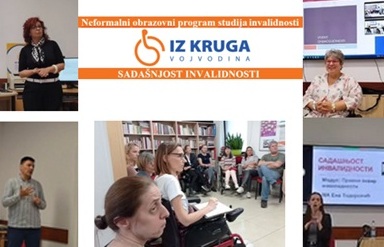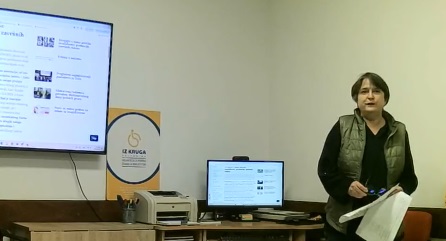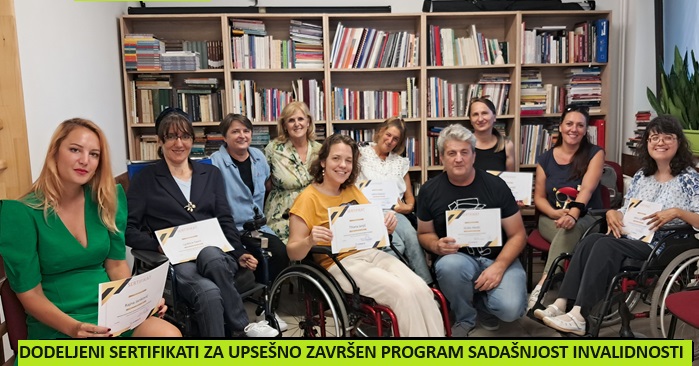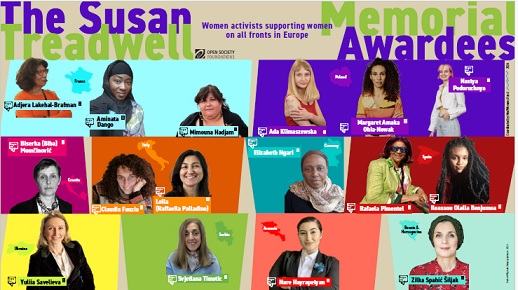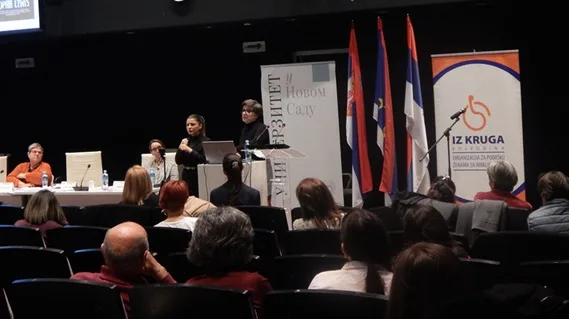Obstetric violence is a global phenomenon that has a long history, masked by an idea of the necessity of the individual’s sacrifice for the greater social good. The female experiences of pregnancy and childbirth are stamped by state, religious, and medical dogma that is manipulative, controlling, and repressive. In its essence, obstetric violence helps maintain and reinforce various forms of social and political discrimination, oppression, and exclusion.

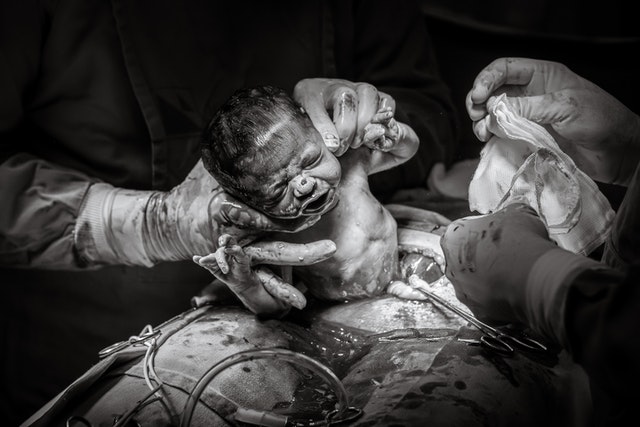
Obstetric violence has many forms: physical and verbal abuse, performing medical interventions without free and informed consent, non-confidential care, non-dignified care, denial of medical services, unjustified detention in a health facility, separation of mothers and infants, routine episiotomy, forcing women to give birth lying down, unnecessary touching before or during childbirth, etc.
To a large extent, obstetric violence has been normalized, but in recent years women have been speaking out about their experiences. In this wave of increasingly massive exposure of violent practices, the experiences of women with disabilities remain invisible.
One of the forms of obstetric violence that women with disabilities have encountered to a great extent throughout history is forced sterilization. Involuntary sterilization is a crime, not only as praxis of the eugenic politics of the II World War, but is a legalized crime in many so-called modern democratic societies. It is carried out in various ways: involuntary contraception, menstruation suppression, and forced abortions.
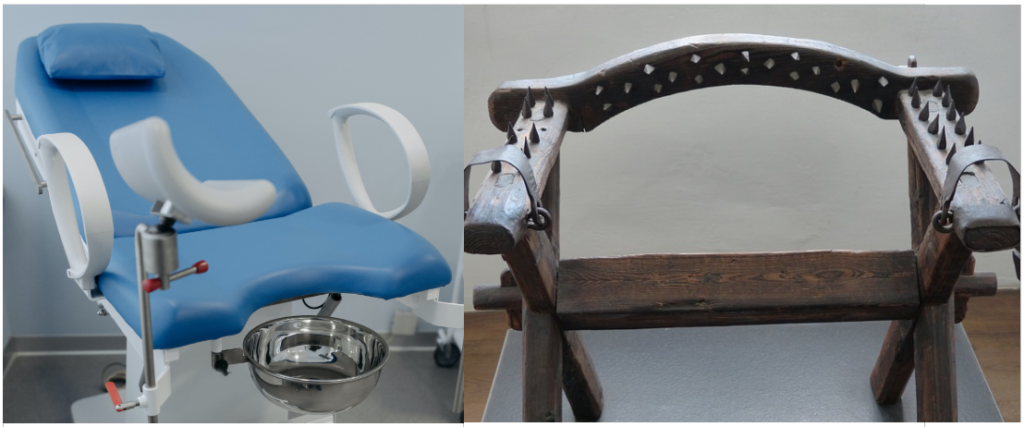
We don’t usually cross-examine a woman’s decision to get pregnant and give birth, but women that do not choose to become mothers are the target of social condemnation. The mental health of a woman that doesn’t want a child is questioned: a woman’s decision to terminate a pregnancy is questioned; a right to legal abortion is questioned – talking about women of the general population. Experiences of women with disabilities paint a different picture; their decision to become mothers is readdressed, and the decision to terminate the pregnancy is considered sound thinking. If she doesn’t want to make that choice, the whole system is directed towards pressing for it because under the criteria of state medical dogma: abortion is the most favorable outcome of pregnancy for a woman with a disability. Coerced sterilization is not a thing of the past; the eugenic ideology is the core of the omnipresent obstetric violence against women with disabilities.
Testimonies that back up this are part of the research corpus of the organization for supporting women with disabilities IZ KRUGA VOJVODINA, which has been working on the promotion of sexual and reproductive health and rights of women with disabilities and prevention of gender-based violence for fifteen years. Authentic experiences of women have been collected through focus groups, interviews, pools, and providing direct counseling support to women that experienced violence and discrimination. These are their voices.
Women with disabilities experience devaluation of their pregnancy; it causes abomination and disapproval of doctors and is proclaimed an error. This comes from an ableist prejudice that a woman with a disability is not a sexual being, has no right to give birth, that most likely she will have a baby with a disability (even if her condition is not hereditary) and that a child with a disability has no right to live. – How could this happen? How could you stay pregnant? In your condition? What were you thinking? These are just some of the questions gynecologists ask about women with disabilities’ pregnancy. Instead of adequate information, medical care, and support, a woman with a disability is exposed to judging and humiliation only because of the fact that she is pregnant, and doctors allow themselves to make decisions in her name, assessing in advance who has the right to give birth and live, and who doesn’t. If a woman with a disability comes to a check-up accompanied, her presence is most often denied; she is ignored as if she doesn’t exist; only her pregnancy matters; she is considered to be a problem that will be solved by somebody else, for her sake and the sake of an unborn child.
– I went with my mum, and the doctor addressed her all the time as if it wasn’t about me. She told my mum: – She will get rid of it, won’t she? My mum answered: – She doesn’t want to, I keep telling her she should, but she is resolved not to.
– I went to the gynecologist for the second time; they put me on the table and performed an abortion. Nobody explained a thing.


In a doctor’s vision, disability not only clouds all other aspects of a being but the body itself. From a medical point of view, disability is not just one of the neutral human experiences, one of the possible diversities, but a pervasive diagnosis that diminishes or neutralizes all other body functions, specifically sexual functions. For most doctors, a woman with a disability is not a woman – she is a diagnosis.
– They simply don’t respect you as a human being. You are cp. You have no name or surname; you are just a person with cp. Your name is the diagnosis – nobody calls you by your own name; you are cp in the female gender.
Accordingly, all the experiences that are common and indisputable for other women (marriage, pregnancy, giving birth, motherhood) are prone to pathologization in the life of women with disabilities. Gender roles are imposed on all women; there is a range of services intended to provide support in exercising those roles, which are denied and withheld from women with disabilities. Most health services and gynecological offices are physically inaccessible to women with disabilities, which gives a clear message that they are neither expected nor wanted there. If a woman manages to overcome physical obstacles, relying solely on her own resources, it is not a guarantee that she will have gynecological services provided.
– If you are bleeding, not feeling well, afraid for your life, and highly stressed when you even don’t have to know what is happening to your body, there is no one to take care of you. You have to be conscious of the situation all the time, advise how to be positioned, how to be picked up, and what to do – you have to set up support on your own. It is always a trauma when I have to see a gynecologist. I always have psychological preparations: who is accompanying me, when do I arrive, who will put me up on the table, who will take off my pants, or what will I wear to be undressed in the shortest possible time, who will hold my legs, etc. Despite million-and-one questions and million-and-one preparations, it never goes smoothly.
Responsibility for the denial of services is shifted to women themselves because the support system for reproductive health, in its essence, is not directed towards women’s needs but towards maintaining a patriarchal dogma that controls women’s bodies and childbirth. Instead of support, women with disabilities are encouraged to avoid any experience that might confront them with a hostile service system. To restrain from being a woman. Or, as one gynecologist would wisely say:
– If you cannot climb the table so I can examine you, you should have thought about it before you lost your virginity.
Despite the delusion of alleged sexual freedom we live in today, dealing with reproductive health is aimed at the elimination of diseases and the ability to procreate. The issues of sensuality, feelings of satisfaction with the body and within it, sexual pleasure, and multi-orgasmic traits of women, the system for the protection of sexual health doesn’t take into consideration. If a woman needs to give birth, it would be best if she could do it without any sexual experience, especially without pleasure.
In so-called modern, democratic societies, one might assume that medical and biblical philosophy don’t go hand in hand; still, they are most often intertwined, particularly concerning women’s health issues. The biblical archetype of a reborn virgin is rooted and revived in delivery theatres, were gynecologists and obstetricians, as a rule, face women in labor with this unattainable ideal.
– You ask for tenderness now, but when you were spreading your legs, having pleasure, you didn’t complain.
– I encountered difficulties in childbirth; I could have gotten sepsis. The doctor was awfully unpleasant; she even spanked me for so long that my legs and thighs were blue. She called me names like a cow, a mare, or a nanny goat because I enjoyed having sex, and now I am complaining.
Delivery theatres are places where professional arrogance is empowered and untouchable male power is substantiated. Although childbirth is an innate female trait, the profession implies that women are not competent to give birth without aggressive medical interventions. Rather than supporting a woman in labor to activate and use the natural sources of her body, the medical system is such that it completely alienates a woman from her power and takes over her role forcibly. Women are not giving birth, doctors are doing it for them, and they are doing it abusively. They use insults, scorn, and humiliation to motivate women; they have absolute control over women’s bodies and the birth process; the only thing a woman in labor can do is to obey, to endure rape in the name of progeny. If we understand that humiliation accompanied by losing control, is one of the definitions of rape, then without a doubt, delivery theatres are places of mass rape.
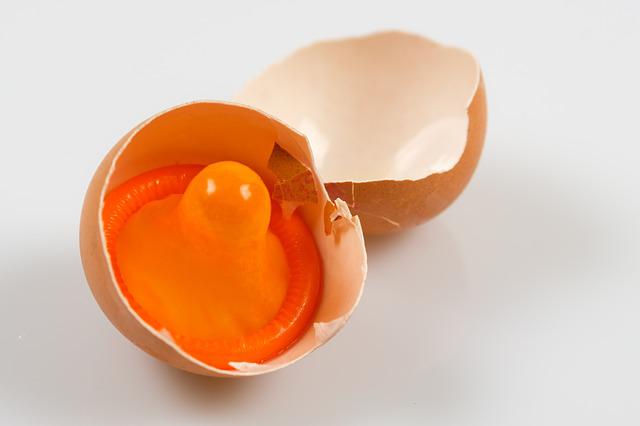

Since women and girls have their bodies, and everything happening inside it, pathologized from their early days, giving birth in normalized trauma is a logical outcome. Girls and young women with disabilities are not just subjected to the pathologization of their bodies but also to the complete neglect of all female aspects of their beings because of the ingrained belief that a woman with a disability has no right to be a woman. If she dares to be one, she pays in multiple ways.
– I’ve told my doctor that I differ from other women, that I have muscle atrophy, and that with any penetration with a sonde while performing an ultrasound, I experience tenfold pain because I have hypersensitivity. She didn’t understand it at all and behaved as if she had heard about it being possible for the first time. Like it didn’t matter at all.
The medical system neither listens to women nor respects the individuality of their bodies. Any meaningful communication between a doctor and a woman is, at best, a matter of happy coincidence. Women who experience communicational barriers (deaf women, nonverbal women, women with developmental disabilities) are declined communication of any type and are constantly at risk of medical interventions without informed consent.
– Then they performed a complete operation. I received no information. Health Center did not engage a sign language interpreter. I asked the doctor and told him that I couldn’t communicate. – How could I explain; it’s too long. You are healthy, go home – that is all they told me. I had no idea what was going on; I understood nothing. I still don’t to this day.
– When I had my first daughter, they sutured me. When I coughed, the wound unstitched because the thread wasn’t sutured well. I stayed in the hospital for two weeks. No one explained why, what, or how. I got zero information.
– The doctor told me I couldn’t have more babies and later added: – I am joking. – We were – he said – only joking.
Inappropriate and offensive jokes, exposure to fear, negligence, mechanical errors, intentionally causing pain, threats, mocking, judgment, denial of credibility and all competencies, invasive interventions without consent or without obtaining valid consent, inability to choose, degradation, treating pregnancy as an illness, treating femininity as a disorder, denial of bodily autonomy, mutilation.
Female genital torture and mutilation are not a reality for women in so-called primitive communities that persist in remote parts of the world, but another form of obstetric violence in modern societies masked by concern for women’s health, and is the result of the general misunderstanding and degradation of the feminine principle. Modern medicine lies on the belief that the female reproductive system is the core of risk and the focus of illness, that a woman is a victim of her own biology, first and foremost of her womb that needs to be under constant surveillance, in order for a woman to heal from its disastrous effect in a timely manner.
– I visited Betanija (Gynecological-obstetrics clinic Novi Sad) multiple times because of heavy menstrual bleeding that they didn’t know how to stop and their stance was: – Why do you need a uterus; you already have children and are in a wheelchair on top of it. The best solution is to take it out right away. I loved my womb and found it really hard to part from it.

Women with disabilities are at multiple risks from the internalization of patriarchal deceptions because they try to access privileges other women take for granted. These prerogatives very often are not privileges but artificial constructs about the essence of being a woman: accepting pain as an inevitability, functioning as if menstruation doesn’t exist, delegating reproductive power to the medical system, submitting oneself, keeping quiet about rape at childbirth, amputating a uterus. Constantly challenged to prove and affirm themselves as women, women with disabilities uncritically adopt social norms imposed on women of the general population, missing out that this model of existence is not tailored to women’s standards. The equality of women with disabilities with other women is far from substantial equality.
What do women with and without a disability want?
– The whole system is built in such a manner that it does not care about women’s health at all, not only when it comes to women with disabilities but in general. If you do a check-up once a year, you are a good woman, super obedient; you can live with a clear conscience. Nobody talks about the physical, mental, and emotional state of a woman and all the things that essentially determine their health and existence.
Translated by: Suzana Belos
Photography: Pixabay, Pexels
